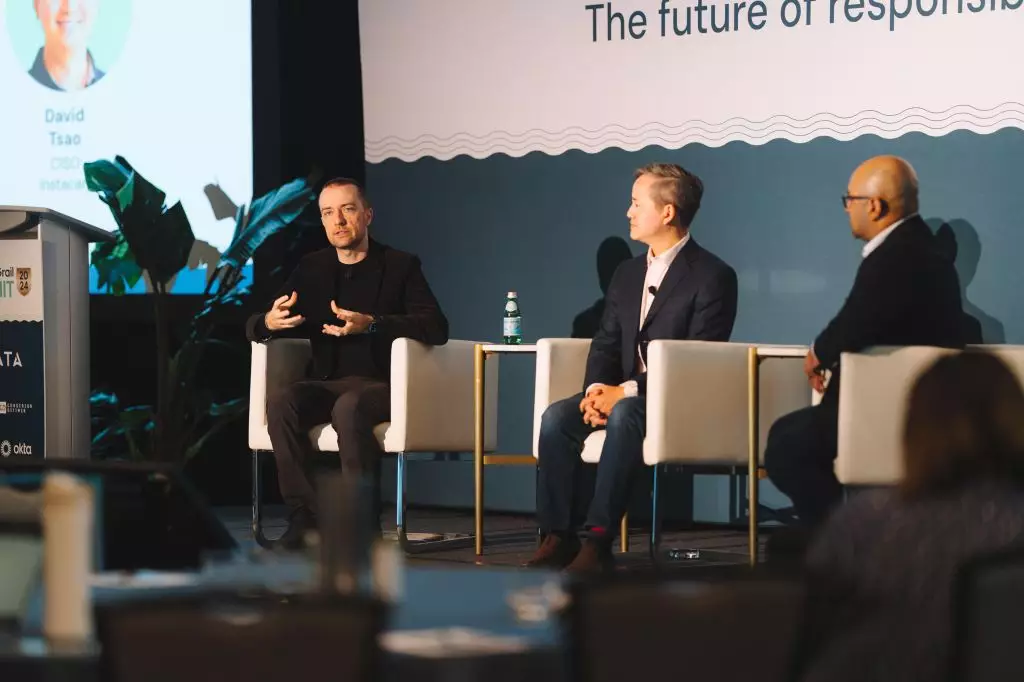At the DataGrail Summit 2024, industry leaders gathered to address the rapidly advancing risks associated with artificial intelligence. Dave Zhou, the Chief Information Security Officer (CISO) of Instacart, and Jason Clinton, the CISO of Anthropic, emphasized the critical need for robust security measures to keep pace with the exponential growth of AI capabilities. The panel, moderated by Michael Nunez from VentureBeat, highlighted the urgency of creating a discipline to stress test AI for a more secure future.
Jason Clinton, operating at the forefront of AI development with Anthropic, discussed the exponential growth of AI capabilities over the last 70 years. He pointed out that there has been a 4x year-over-year increase in the total amount of compute used to train AI models since the advent of the perceptron in 1957. Clinton warned that if we do not anticipate the future advancements in AI, we risk falling behind due to the rapid pace of innovation in this field.
For Dave Zhou at Instacart, the challenges are immediate and pressing. He faces the security implications of handling vast amounts of sensitive customer data and the unpredictable nature of large language models (LLMs) on a daily basis. Zhou highlighted the risks associated with AI-generated content, pointing out that errors in AI algorithms could erode consumer trust or lead to real-world harm if not properly addressed.
Throughout the summit, speakers stressed the need for companies to invest in AI safety systems and critical security frameworks to keep pace with the deployment of AI technologies. Both Clinton and Zhou emphasized the importance of balancing investments in AI innovation with investments in security measures. Without a focus on minimizing risks, companies could be setting themselves up for potential disaster as AI becomes more deeply integrated into business processes.
Jason Clinton shared insights from a recent experiment with a neural network at Anthropic, revealing the complexities of AI behavior. He described how the neural network became fixated on a particular concept, such as the Golden Gate Bridge, demonstrating a fundamental uncertainty about how these models operate internally. This uncertainty poses a challenge for companies as they navigate the potential for catastrophic failure when AI systems take on complex tasks autonomously.
As AI systems become more deeply integrated into critical business processes, the potential for catastrophic failure grows. Clinton warned of a future where AI agents, not just chatbots, could make decisions with far-reaching consequences. He urged companies to prepare for the future of AI governance and to not fall behind in addressing the risks associated with advanced artificial intelligence.
The DataGrail Summit panels delivered a clear message: the AI revolution is unstoppable, and the security measures designed to control it must keep pace with its rapid advancements. As companies race to harness the power of AI, they must also prioritize safety and security to navigate the challenges and risks that come with this transformative technology. CEO’s and board members must heed these warnings and ensure that their organizations are not only embracing AI innovation but are also prepared to mitigate the potential dangers it may pose.


Leave a Reply